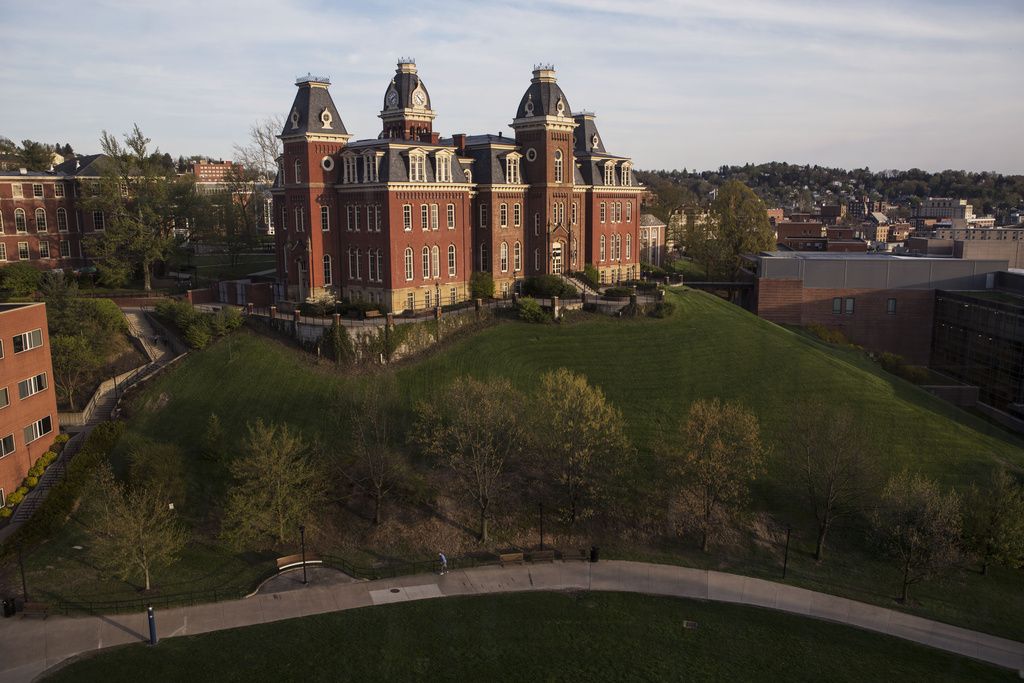
Students at West Virginia University may want to think twice before handing out free copies of books sympathetic to the Israeli cause.
The public university launched an investigation into student Eliyahu Itkowitz over accusations of religious discrimination and harassment after he distributed copies of “The Ten Big Anti-Israel Lies: And How to Refute Them with Truth,” the 2024 book by legal scholar Alan Dershowitz.
The Foundation for Individual Rights and Expression said the university dropped the case against the freshman in May after a months-long internal review, but argued that the entire probe “never should have happened in the first place.”
“This case aptly demonstrates that WVU’s policy of investigating wholly protected expression has allowed students and staff to weaponize the complaint process to silence their ideological opponents,” said Jessie Appleby, FIRE Program Counsel for Campus Rights Advocacy, in a Monday letter to WVU President E. Gordon Gee.
“This is an unacceptable and unlawful outcome,” Ms. Appleby said.
In January, the university opened the probe into Mr. Itkowitz based on two complaints filed by campus dining hall employee Hannah Harper.
She told the campus police and the Division of Diversity, Equity and Inclusion that Mr. Itkowitz handed her a copy of an “anti-muslim book” on Dec. 13, which she accepted.
She also said that she recognized him from a social-media post by the Muslim Students Association.
In October 2024, the association ran a photo of Mr. Itkowitz on GroupMe, saying he had “already verbally harassed our Muslim sisters” and urging students to contact campus police if “you ever feel uncomfortable.”
“The Zionists on campus do not get away with this behavior,” said the association. “We have had one individual arrested for vandalizing MSA property, and another individual charged with disruption and harassment, and he has left WVU completely.”
In January, Ms. Harper filed another complaint against Mr. Itkowitz for eating at the dining hall, claiming falsely that he had been banned. She also said he had previously disparaged Muslims.
“She alleged he made anti-Muslim comments, such as calling her ‘anti-Jewish,’ and told her to do ‘[her] f—-ing job,’” said the foundation in a statement. “She also claimed that in November, Itkowitz walked by her in the dining hall and said to a friend, ‘I didn’t know they let f—-ing terrorists work here.’ Itkowitz denies making any of the comments, and the witnesses present never saw him speak to her at all.”
As a result, the university issued a no-contact order Jan. 16 instructing Mr. Itkowitz to stay away from Ms. Harper. The DEI division began its investigation into the complaints on Jan. 27.
Ms. Appleby said in the letter that “Itkowitz’s case is not the first of its kind at WVU.”
“By launching investigations and issuing no-contact orders based on complaints solely alleging protected expression, WVU is allowing students and staff with ideological disagreements to use its complaint process as a cudgel to silence opponents,” said Ms. Appleby.
A West Virginia University student handed a dining hall worker a book: “The Ten Big Anti-Israel Lies” by Alan Dershowitz.
She took it—then accused him of harassment, claiming the book was anti-Muslim.
WVU launched a formal investigation. pic.twitter.com/7JpaxRNh3G
— FIRE (@TheFIREorg) June 17, 2025
She said the university began a 10-month investigation into another pro-Israel student who participated in a 2023 counter-protest against a pro-Palestinian protest that ended only when the student left the university.
The foundation called on the university to lift the no-contact order against Mr. Itkowitz and revise its process for handling student complaints solely about protected speech.
“The correct approach is to have administrators conduct a preliminary internal review,” the letter said. “If the review confirms the alleged speech is protected, WVU should close the matter without ever notifying the speaker — thereby avoiding a chilling effect — while offering support to the complainant.”
The Washington Times has reached out to WVU for comment.
The foundation warned that universities cannot “allow weaponization of DEI investigations to inhibit the free exchange of ideas.”
“A university campus that investigates students every time someone is offended cannot function as a home for rational dialogue and debate,” the organization said. “Administrators must accept that students will sometimes be offended when confronted with views different from their own.”








